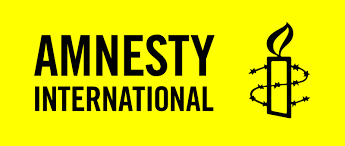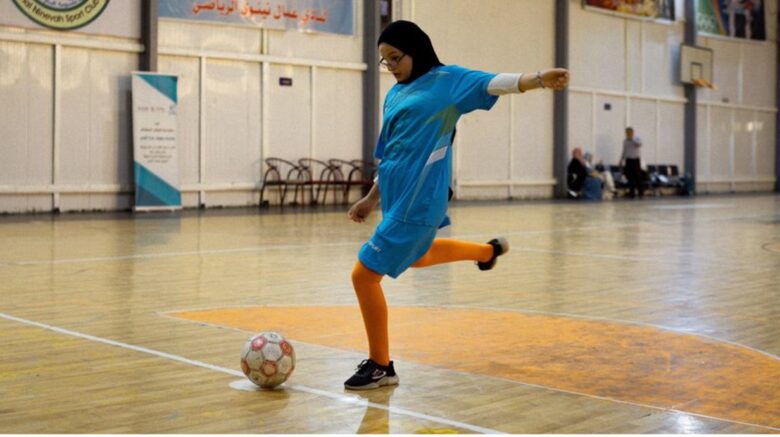AUTHOR: Jessica Giovanella
February 2025. France proposes a bill to ban all ‘ostensibly religious’ clothing and symbols during competition. France already sparked controversy around the hijab before the Paris Olympics of 2024 when it refused that women athletes participate with a hijab. The Olympic games were supposed to be the first Gender equal Olympics, but instead discriminated against Muslim women. At the time, the United Nations made a report in October 2024 condemning the ban as disproportionate and discriminatory. Despite this report, France submitted a new bill, reiterating the problem in all sports.
What does the bill request?
The bill specifically requires that no ‘ostensibly religious’ clothing and symbols be worn during competition, either organised by local organisations, professional leagues or associations. It should be noted that the hijab has already been banned in certain sports such as basketball, football and volleyball, at both professional and amateur levels. However, this bill seeks to enlarge the ban to all sports and to forbid any prayers in sports facilities or within the institution.
The justifications and impacts
This legislation has been justified under the principle of ‘secularism’, which means the separation of the state and religion. The French government also argued that the bill was intended to prevent counter-societies from forming and to limit ‘security threats’. Those justifications are only hiding France’s racism and Islamophobia. Indeed, this legislation targets Muslim women and girls more than anyone, denying them their passion.
By proposing this bill, a dilemma is imposed on Muslim women, either to choose their religion and abandon their sport, or to ‘betray’ their religion for their sport. Not only does the bill present questionable conditions for Muslim women and girls, but it also deeply impacts their mental health. Indeed, Amnesty International reported on the consequences for Muslim women, notably trauma, breakdown of social ties, loss of self-confidence, and stigmatisation.
Not the first time
As seen with the controversy around the Paris Olympics and the previous ban of the hijab in specific sports, the bill is only a continuation of previous racial and gender discrimination. Nevertheless, the sports area is not the only one concerned with islamophobia. The decision in August 2023 to ban the abaya from schools shows the spread of racism to various areas. In 2023, the French Prime Minister Gabriel Attal decided to forbid girls from wearing the abaya. The latter is a type of robe-like dress, also called aba, worn mostly by Muslim women and girls. The word secularism was mentioned again by the Prime Minister, who argued that the ban on the abaya would provide further inclusion in school properties. Wearing full-face veils has also been forbidden in public areas since 2010. This ban was under the justification of ‘living together’, words implying unity and inclusion.
Nevertheless, both cases represent similar islamophobia and gender discrimination faced by Muslim women and girls. France perceives Islam as a threat, placing it within the typical Western framing of terrorism and patriarchy. Similarly to the bill proposed recently, those bans in public areas and schools deeply impact Muslim women and girls, targeting them specifically and pushing them to slowly let go of their identity and religion.
France, the only one breaching Human Rights?
Despite the UN’s report in October 2024 and the several Amnesty International reports blaming those bans for being a source of discrimination and stereotypes, France continues to use the same justifications of inclusion and secularism in order to further limit Muslim women and girls from expressing their religion. France even contradicts international sports bodies like FIFA, FIBA, and FIVB, all of which allow religious attire, and some argue that France breaches international human rights treaties such as the International Covenant on Civil and Political Rights and the International Covenant on Economic, Social and Cultural Rights.
It even seems that France is the only country doing so. Indeed, among 38 European countries, France is the only one to ban headscarves in sports. Overall, this makes France one of the only countries to create a hostile environment for Muslim women and girls. Some, such as the International Olympic Committee, simply justified France’s ideas by stating that freedom of religion was understood differently depending on the state.
A call to refuse the bill
Considering the serious discrimination and reinforcement of racism this bill entails, French lawmakers must reject this legislation. The ban of religious symbols in all sports would drastically affect Muslim women and girls who have already been affected by previous banning decisions in sports, education and public areas. The excuses of secularism and inclusion have already been used in the past and have hidden the patriarchal and Islamophobic nature of those legislations. It is time to realise the impact of those legislations and to reject the proposed bill of February 2025.
Sources of the article:
https://www.amnesty.org/fr/documents/eur21/7280/2023/fr/
https://www.amnesty.org/en/latest/news/2024/07/france-hijab-bans-olympic-and-paralympic/
https://www.legifrance.gouv.fr/jorf/id/JORFTEXT000022911670
Source of the picture:

